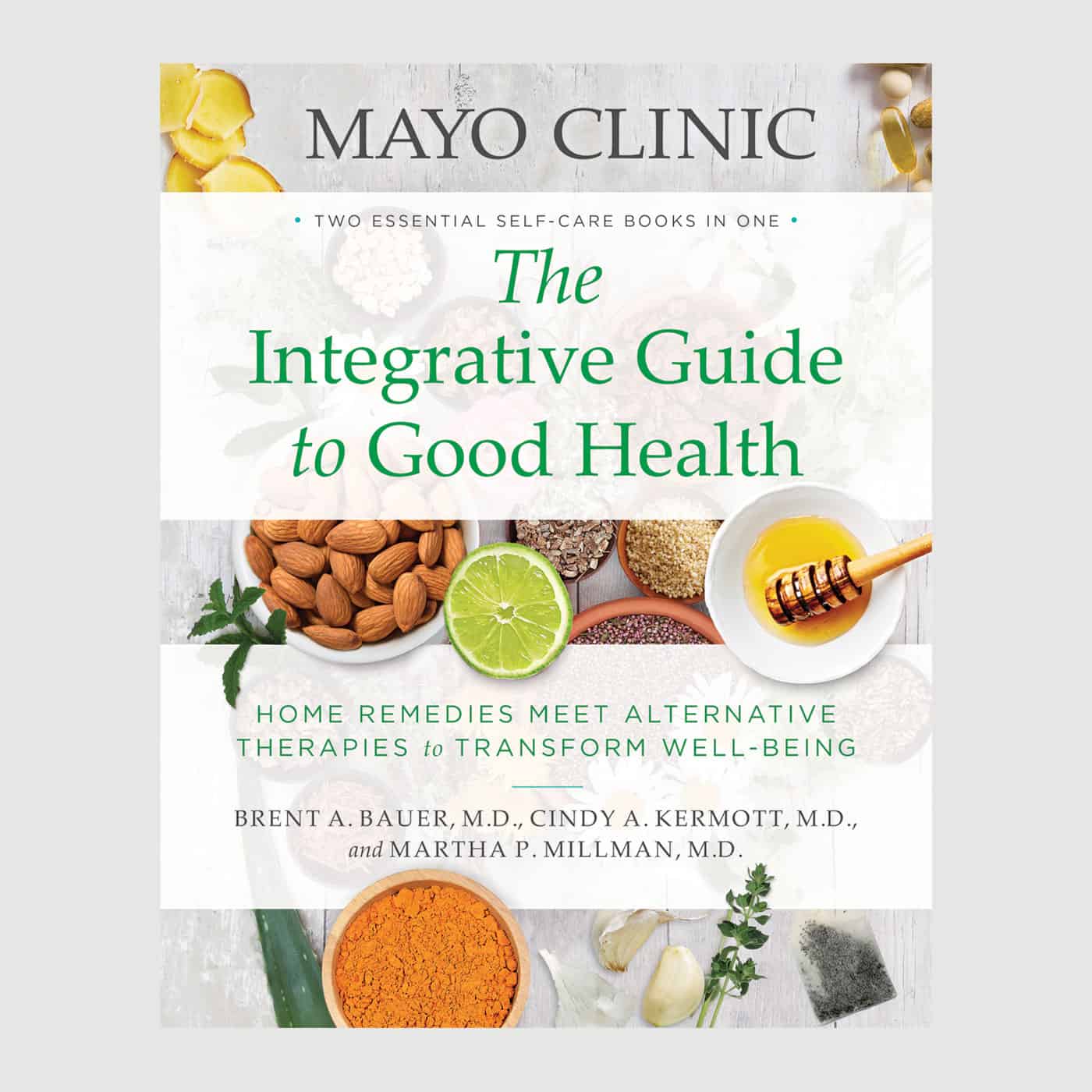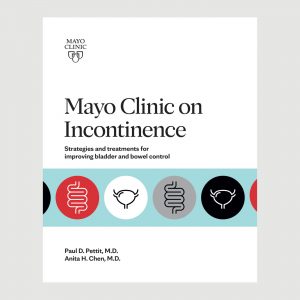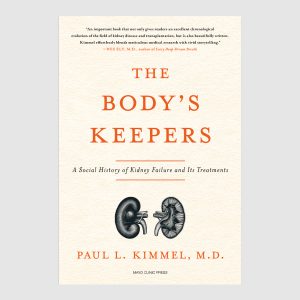Pets are close to our hearts — and they’re good for our hearts. Having a pet is linked to a whole host of cardiovascular benefits, from reduced blood pressure to increased physical activity. So snuggle up with your pup, and let’s learn how caring for our animals helps us care for ourselves, too.
On this episode of Health Matters, cardiologist Dr. Francisco Lopez-Jimenez talks with us about the connection between cardiovascular health and your furry, feathered or fanged friend.
Find us online at Mayo Clinic Press for more health and wellness articles, podcasts and books.
Do you have feedback, questions or topic suggestions? Email us at mcppodcasts@mayo.edu.
Read the transcript:
Kristen Meinzer: This is “Health Matters,” a podcast from Mayo Clinic where we discuss the latest medical advice, news, and research to help you live a happier and healthier life. My name is Kristen Meinzer. I’m a writer and journalist, and in this episode we’re talking about our furry best friends: pets! And all the good they do for our health, physically and emotionally.
How do pets benefit cardiovascular health?
About half of pet owners consider their pets as much a member of their family as their fellow humans. Pets are close to our hearts. As it turns out, they’re also good for our hearts. Our pets provide companionship, reduce our stress and anxiety, and even encourage us to get outside and move around. It’s not surprising that owning a pet is linked to cardiovascular benefits.
Now what exactly are those benefits? How effective are they? And how can we take advantage and maximize them? In this episode we’re speaking with Dr. Francisco Lopez-Jimenez, a cardiologist at the Mayo Clinic and the proud owner of Choco, a German short-haired pointer. Dr. Lopez-Jimenez, welcome to the show.
Dr. Lopez-Jimenez: Thank you, Kirsten. It’s a pleasure being here..
What are the health benefits of dog ownership?
Kristen Meinzer: We’re so excited to have you here with us today. As you know, we’re here to talk about pets and how they help our health. And, just to clarify, in today’s conversation, when we say “pets,” we’re really focusing on dogs — because that’s where most of the research is focused. More specifically, we’re going to be talking about dogs that are strictly pets – not emotional support animals, or therapy or service animals.
Dr. Lopez-Jimenez: Yes.
Kristen Meinzer: Now, most dog owners might think it’s pretty obvious that pets make their lives better — but more objectively speaking, doctor, what are the benefits of having a pet — from a medical point of view?
Dr. Lopez-Jimenez: I mean, we can just start by the fact that pet owners tend to be more active. It might be related to the need to go out and walk the dog, which by itself adds activity to the day.
There are some studies suggesting that pets also make us more active within the house. When the pets are just bugging you and asking you to chase them around and things like that. There may also be this sense of companion. There is very strong research showing that being isolated is not good for our health. People die younger and sooner when they are isolated.
Just having another living creature next to us, I think we feel connected. We feel love. We feel support. Those are things that drive down our stress hormones. During, COVID, the number of people getting a pet went up. I mean, significantly as probably never before.
Can owning a pet reduce stress?
Kristen Meinzer: Here in New York, the shelters actually ran out of adoptable dogs!
Dr. Lopez-Jimenez: Pets became hard to find. Humans really recognize the value of having a pet, particularly during difficult circumstances or moments of loneliness. Dogs really became the saviors of many souls by making people less sad or less depressed and having some companions.
The problem now is that a lot of people actually went back to work in person and right now what we see is quite the opposite. A lot of the shelters have a lot of dogs and cats that people are basically going there to dispose of because they can’t take care of them anymore.
Is the link between pets and health benefits correlation or causation?
Kristen Meinzer: Yeah. It’s very sad. I want to pick up on what you said about what pets have done for us, in general, and especially during COVID. The ways in which they influence and motivate us. These are all good things for the heart, exercise, stress reduction, companionship and so on. But just to be a naysayer here for a second, is this correlation or causality that we’re seeing here?
Dr. Lopez-Jimenez: Excellent point. As a scientist, I will say this is correlation. Those have been primarily studies, linking pet ownership, and the likelihood to be healthier. There are some studies, basically following people to see if pet owners will live longer and so forth and so on, but still observational in nature.
As far as I know, there are no clinical trials where a pet was assigned to some people and then it was not assigned to others. That will be difficult to pursue. But let me say something, there are some studies, experimental studies, showing how interaction with horses, for example, can reduce stress.
There is actually Equinox Therapy or horse therapy, being used for stress reduction, stress management and for some specific emotional problems where interacting with horses has shown good results. I haven’t seen that with dogs, but that will be a fascinating study.
How do pets influence our body’s stress response?
Kristen Meinzer: Dr. Lopez-Jimenez, I’m eager to dive into a conversation about how pets affect our stress response. But before we get into that could you talk about what a normal stress response looks like for our bodies?
Dr. Lopez-Jimenez: Stress is a normal reaction of our bodies, essentially, to keep us alive. Stress is the immediate reaction we get when we are in danger or basically anything becomes a threat. For example, stress increases the level of some hormones that are particularly there to make us survive in case of a catastrophe. Stress hormones will make our blood pressure go up and give us this rush of energy to run and survive. Flight or fight.
Now, stress at some point is good, but beyond that point is not good anymore. It’s actually not very healthy. It’s something that can change our physiology in very negative ways. As we know, stress is something that we live with every day, with deadlines and commitments and responsibilities. Now, all those responses will generally lead to something negative because we have the responses not necessarily because we are running away from a tiger or a lion, but because we have to meet our boss or we have this deadline.
What happens during those moments include an increase in our blood pressure, an increase in our heart rate, our sugar goes up and may go up above the normal limits. At the same time, the arteries collapse or get smaller and the end result of all those things together are negative consequences to our health.
How do pets help reduce physical stress symptoms?
Kristen Meinzer: Now, doctor, let’s add pets into the mix. How do they helpwith our stress response?
Dr. Lopez-Jimenez: Well, number one is by helping us become more active. Physical activity reduces all those stress-related responses. And by activity, I mean, just moving around, not necessarily exercising, just a spontaneous activity. Those bursts of activity where you move for one hour at a time, where you move for five minutes every hour. All those bursts are not just good to increase the heart rate and make our heart healthier, but also to improve the metabolism of the blood sugar.
My dog, if I’m working from home, he will be nagging me all the time. I must actually go out of the office and play around for a few minutes and the play has to involve some activity. Then going out, usually once or twice or three times a day, depending on our availability will add more to that. Studies have shown that with brief episodes of activity, the metabolism of the blood sugar gets reset from the sedentary mode to a more active mode and then that stays for longer than the activity per se.
How do pets improve emotional well-being?
Kristen Meinzer: If I’m understanding correctly, doctor, we have two metabolic modes: there’s the sedentary mode when we’re inactive, and then, the opposite: the active mode, when we’re moving around. And each time we move from sedentary to active, it’s like flipping a switch.
Dr. Lopez-Jimenez: Yes. But when we stop being active, when we go back to sedentary mode again, even though we’re not moving anymore … it’s like our switch is still in active mode for a little bit longer. We’re getting the benefits of being active even when we’re not actually doing anything anymore.
Let’s say you are sitting for 45 minutes and then you have this burst of activity. Those three or five minutes of activity, moving around, then that resets that metabolic system beyond those three or five minutes. It usually resets that to a more active mode for a longer time, and that will generally make us healthier.
How do pets provide companionship and a sense of purpose?
Kristen Meinzer: Dr. Lopez-Jimenez, How else do pets help our stress reduction? You said that number one is making us move more. But stress doesn’t just affect our physiological health; it also affects our emotional health. Can you talk more about how pets help us in that area?
Dr. Lopez-Jimenez: The emotional support, the companion, the stress reduction, they work in different ways. One is by lowering the level of stress hormones, the likelihood to have heart attacks goes down, the likelihood to have irregular heartbeats goes down and so forth and so on.
Other mechanisms might relate to emotional health. We know that pets improve our emotional health and emotional health is a protective factor. We know that anxiety and depression relate to heart attacks and to sudden death and many bad outcomes, and therefore preventing or reducing or improving depression, would be another mechanism through which pets might help.
Somehow pets also help us to see life from a different way because we learn a lot of lessons from pets. We learn to be grateful. We learn to be content with simple things. That’s something that is difficult in modern times. We need more and more to be happy. Whereas a dog will be happy with a little treat.
Do all pet owners benefit equally from owning a pet?
Kristen Meinzer: A torn up sock. What a lesson of simplicity a dog can give us, really.
Dr. Lopez-Jimenez: That’s another way for us to feel better, exercise, gratitude, exercise simplicity.
Kristen Meinzer: I have to say more often than not, most dogs are happy to see us. Like when we come home. after being out, even if it’s only out for 10 minutes, they seem excited like, “Oh my gosh, you came home. It’s been 800 years.” And it’s like, “No, Maria, it’s been 10 minutes.”
Dr. Lopez-Jimenez: That’s definitely another factor. With dogs, we also learn the value of unconditional love, and that’s certainly very good for us. Dogs also give us a sense of purpose. Another factor that relates to health. There are many theories around that, suggesting that the sense of purpose is one of the major factors related to longevity.
We might have the most meaningless job. We might have a totally dull day, but our dogs will give us a sense of purpose once we get home and we see that somebody is waiting for us, a living creature that is depending entirely on us to survive.
Kristen Meinzer: Something else you mentioned earlier was social isolation and how dogs can really relieve that, but is that really just the human and the dog, or is that because dogs get us out there and talk with other dog owners?
Dr. Lopez-Jimenez: I think it’s both.
Kristen Meinzer: Okay.
Dr. Lopez-Jimenez: Some people have two dogs or other pets. Then you’re part of the pack, and then if you go out to a dog park or walk around and have chances to interact with other people. I have an interesting dog because he loves to go to dog parks, but he doesn’t play with dogs.
He’s extremely happy to be close to dogs, but is not mingling with dogs. That’s another thing that helps me understand that sometimes happiness doesn’t necessarily depend on interacting directly with people, but just knowing that you are not alone.
Kristen Meinzer: All of this is so beautiful and inspiring the way we’re talking about dogs right now. My heart is so full just talking about them. Our pets can be incredibly beneficial for our cardiac health.
They help us with generally being more active – and that can mean standard exercise like going on walks or hikes, but it can also mean just moving around more, a little bit at a time: Getting up and chasing your dog for a few minutes, or tussling with the ball.
This helps increase our heart rate and reset the rate at which our body metabolizes sugars into energy. By keeping us active, our pets actually change the physiology of our body. Naturally, this movement helps lower our stress. But, these benefits… they’re not just about being active– there’s an emotional component, too, to what our pets provide.
They provide us with companionship, a sense of purpose. They can prevent and reduce our anxiety and depression, which in turn lowers our risk of heart attack and sudden death.
Dr. Lopez, let’s get into some of the day to day for all the pet owners and future pet owners out there. First of all, what kind of things can we pay attention to in ourselves and in our bodies to understand how our pets are affecting us? What should I be looking forward to knowing?
Dr. Lopez-Jimenez: Most pet owners might not realize the health benefits they are getting. Because I don’t think people get a pet to be healthier. We get a pet because we love dogs and we want to have a dog.
Now, I think it will be important for people to see the difference before and after we are interacting with our pet, because I think that might be a big learning point where we say, “I was very stressed out and now I feel better after being with my pet. That will be one.
I think in general it will be important to recognize that we feel more at peace when we are with our pets. That our thoughts are clear and that we feel calm. A sense of well being in general. Now when we go out and walk our pets, that by itself should bring a lot of the immediate positive responses.
People say that walking is the solution for many problems. If you are stressed out, go for a walk. If you want to concentrate, go for a walk. If you are sad, go for a walk. Pretty much walking is the response to many things. If we do that with our pet, just going out and walking, gives us a lot of those positive responses.
Kristen Meinzer: What about other activities with our dogs? Let’s say I’m in the same room as a dog, but I’m not petting it. Does that make a difference or is it going to be healthier for me to cuddle my dog?
Dr. Lopez-Jimenez: I think there are different levels of interaction. Might be a very close interaction. Might be very physical. Some people talk to their dogs all day long. I think I do that. I talk to my dogs in English, not in Spanish. Somehow I believe that my dog understands English, but not Spanish. So it’s weird.
Kristen Meinzer: Is it because your dog, before you adopted it, already spoke English as a first language and you just didn’t want to mess with that?
Dr. Lopez-Jimenez: No, I think it’s because my wife gives all the commands in English. I think somehow that’s how my dog became more like an English speaker. There are different levels of interaction. Sometimes when we are in the backyard, we might interact very distantly. The dog is out there playing around. But if I get inside the home, my dog immediately feels that and comes to the door, “What is going on? You are not here. We were together. But we were not together.”
I think that that illustrates different levels of interaction, and we enjoy that, and I can be out there reading a book. My dog is running around chasing squirrels or ignoring me. But in reality, we are still connected.
Kristen Meinzer: We’ve talked a lot about so many good parts of having a pet, but some of us just can’t have pets. I have terrible allergies, for example. I love dogs so much. I go to the dog park. Sometimes I’ll visit with friends who have dogs and I’ll play with them a little bit and then I’ll scrub myself down and take a shower afterward but am I getting some of the same benefits from those kinds of interactions with dogs that I might if I actually owned one?
Dr. Lopez-Jimenez: If you feel joy, uh, just watching the pets, I will say you do benefit from that. If you go to a dog park, and you have joy just by watching the dogs running around, I’m sure your body is getting some benefit.
Now, obviously, it all depends how often you do that. All the benefits relate to the frequency of our exposure, but yes, some people have some medical conditions, some allergies that will not, make it very safe to have a dog at home.
We had a party last week for my granddaughter and my wife. Actually a couple of bunnies and one goat. For those who have a dog allergy, you might not be allergic to other animals and you might still enjoy petting other types of pets.
Dr. Lopez-Jimenez: I have a niece who has a snake in her place.
Kristen Meinzer: A snake.
Dr. Lopez-Jimenez: Yeah, and she swears that just contemplating the snake is one of the most relaxing things she can do in her day. I can see that. When you see the snake, and that very soft, predictability might have something special with it, actually.
Kristen Meinzer: Something a little hypnotic and relaxing about that. The way you just described that.
Dr. Lopez-Jimenez: Something hypnotic. That’s something that I never thought about, but, just to illustrate that different animals might have different effects on our health.
Kristen Meinzer: Doctor, we’re talking about how pets offer all these benefits to our lives, making us healthier and happier … but do they really make everybody happier and healthier? Or are they going to be causing more stress in some cases? Because pets are a huge responsibility and they don’t always behave the way we want them to.
Is it ever the case that actually having a pet will make us less healthy? That it might actually drive up some of the stress in our lives instead of alleviating it?
Dr. Lopez-Jimenez: I think so. I think in some circumstances, pets might not be the right solution for our challenges, or might make our lives more complicated. It happens when circumstances in a family change. A member of the family dies who was the primary caregiver of the pet, and then the other person doesn’t feel empowered to take care of the pet.
Or when pets become more needy and require a lot of assistance and the person cannot give that level of assistance. I suspect that that person might have more stress for feeling unable to support their pet.
Sometimes some pets misbehave and they can give more troubles than solutions. Some pets might give us trouble with the neighbors by jumping the fences or barking. Sometimes pets might increase our stress if it is not the right pet or if the pet wasn’t trained well, or if we don’t put the necessary guards to keep the pet inside our home. Pets can increase our stress if we don’t do the right things or if we choose the wrong pet for us.
What should you consider before getting a pet?
Kristen Meinzer: If I have a cardiovascular condition, I shouldn’t just run out and get a dog right now?
Dr. Lopez-Jimenez: People just don’t like to have a pet. I suspect that they may actually suffer more than feel any benefit of having a pet around.
How can you experience the benefits of pets if you can’t own one?
Kristen Meinzer: I don’t want pets and now I have one. This is the worst.
Dr. Lopez-Jimenez: A person who really cares a lot about his, or her furniture and the ordering at home and the smells and this and that, obviously a pet might be a headache for that person. They might just increase the level of stress and anxiety and anger and other things. But I think that will be mostly depending on the person. And in some cases it depends on the pet, of course.
Kristen Meinzer: Out of curiosity, what are your favorite things to do with your dog?
Dr. Lopez-Jimenez: Different things. Playing around, usually chasing him, throwing balls very far. He’s a hunter, so he really wants to go and chase those tennis balls. Or just going out for a walk in general. When I sit down to read a book, I usually have my dog next to me. We can be there for two hours at a time, and he will be there for two hours.
Kristen Meinzer: It sounds like a great relationship you have with your dog. What a sweet relationship. I think everyone listening is going to want to adopt a dog after this. Dr. Francisco Lopez-Jimenez, this has been such a lovely conversation. Thanks for joining us today.
Dr. Lopez-Jimenez: Well, thank you for having me here. It has been really a pleasure having this very nice conversation with you.
Kristen Meinzer: How can we actually really recognize these benefits that pets provide when it comes to our own lives? Firstly, we have to see what kind of interaction works best for us — maybe you’re allergic, and watching animals from afar is enough to do wonders for your soul. Or maybe, you’re not a dog person, but… really into goats? Whatever the method, or whichever the mammal, think about how youfeel after you go play fetch with your pup, or cuddle with your furry friend on the couch. Not only physically but emotionally — do you feel calmer? More clear headed? More positive?
As a tragically allergic dog lover who can’t have dogs — I know that after having this conversation — I already feel some of these positive benefits… just talking about them! And if you want to find me, I’ll be that weirdo casually sitting outside the dog park with a cup of coffee, looking for an excuse just to watch everyone’s dogs from afar.
Okay, that’s all for this episode. But if you’ve got a question or topic suggestion, you can leave us a voicemail at 507-538-6272. We might even feature your voice on the show!
For more “Health Matters” episodes and resources, head to mayoclinic.org/healthmatters.
Thanks for listening, and until next time, take care and stay healthy.

Relevant reading
Mayo Clinic The Integrative Guide to Good Health
As Americans seek greater control of their health, explosive growth is taking place in the field of integrative medicine. More and more, people are looking for more natural or holistic ways to maintain good health; they want not only to manage and prevent illness but also to improve their quality…




















